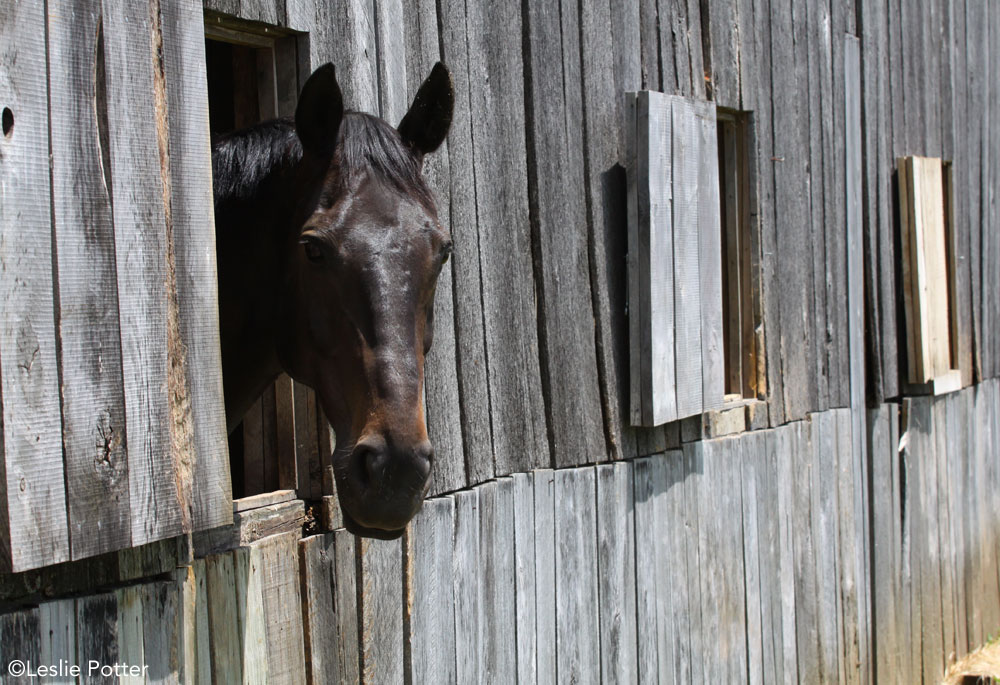Ask the Vet: Recurrent Colic


Q: My horse recently had a bout of colic. He recovered fully, but I’ve been told that once a horse colics, he’s more likely to colic again. Is that true? And if so, why?


A: Unfortunately, many studies over the years suggest that a horse who has experienced an episode of colic is at a higher risk of developing colic again, including this paper:
Risk factors associated with colic in horses (a review of 12 epidemiological studies)
Goncalves S, Julliand V, Leblond A.
Vet Res. 2002 Nov-Dec;33(6):641-52
This paper says that, according to the published literature, the factors that increase the risk of colic are:
- feeding practices (type and quality of food, type and changes of feeding)
- the intrinsic factors of horses (sex, age, and breed)
- management (type and changes of housing and activity)
- medical history (previous colic, administration of a medical treatment)
- parasite control (the presence of worms and type of deworming program).
Dr. Nat White, professor emeritus of equine surgery at Virginia Tech’s Marion DuPont Scott Equine Medical Center, has performed hundreds if not thousands of colic surgeries and is a highly sought after speaker on the topic. He had this to say at the 52nd Annual Convention of the American Association of Equine Practitioners in San Antonio, TX:
“Horses that have had a previous episode of colic are 3 times more likely to have a second colic episode compared to a horse that has never had colic. Said another way, if the incidence of colic in a normal population of horses with no previous history of colic is 10 out of 100 horses in a year, the rate of colic in a population of horses with a history of previous colic would be 30 out of 100 horses per year.”
In that same talk, he also said that horses with a prior history of abdominal surgery are at a higher risk of repeat colic episodes–often due to adhesions or bowel scarring and narrowing–and that horses with colon impactions have a high rate of repeat colic. The reason for this particular increased risk is not known, just like the reason for horses with a history of previous colic to be at a higher risk for future colic episodes is not known.
Scientists are currently studying a variety of theories about why some horses colic (and colic repeatedly) and others don’t. But for now, it’s probably not too great a leap to assume that a horse who previously developed colic could colic again if feeding practices, management, preventative medical care, and other proven risk factors aren’t adjusted. So here’s some practical advice to lessen your horse’s chance of becoming a statistic:
- Feeding practices
Change the type and the amount of hay and grain gradually, taking 10 to 14 days to allow the horse’s own digestive system as well as the microorganisms in the gut to become accustomed to a new batch of forage, a new brand of concentrate, or a different amount of either. Only feed as much grain as necessary to maintain weight, as more than about 5 pounds per day has been associated with an increased risk of colic. Avoid excessively coarse, extremely lush, and exceptionally inconsistent forages. - Management and exercise
Not only has a sudden change in activity level such as turn out time or exercise workload been linked to colic, but simply an increasing number of hours spent in a stall correlates with an increasing risk of colic. Changes in housing have been associated with a higher rate of colic but sometimes these are unavoidable (a sale or purchase, a move, etc) so make sure other factors in the horse’s life remain UNchanged such as diet and exercise and consider GI support through the transition. - Preventative medical care
It’s been demonstrated fairly convincingly that the lack of an appropriate parasite control (such as no ivermectin or moxidectin within 12 months) program can lead to colic, so follow the veterinarian’s advice when it comes to fecal exams and targeted administration of dewormers. Also, the fewer times per year a horse’s teeth were checked/floated has recently been linked to colic, which means making sure a dental exam is part of each horse’s annual evaluation.
Other risk factors for colic include a history of travel in the previous 24 hours, a history of residing on the current establishment for less than 6 months, and a recent change in weather conditions, all of which may not be under an owner’s control. In times like these, try to keep everything else the same—diet, turnout and exercise, preventative care—and consider the additional support of clinically studied ingredients like yeast, prebiotics, and enzymes to help stabilize microbial populations living in the hindgut. As someone caring for a chronically colicking horse, I’m right there with you!
Liked this article? Here’s more from Dr. Gray:
The Colic/Ulcer Connection
Vitamin Deficiency in Horses
Recent Posts
Is Your Saddle Making You Ride Badly?
For successful saddle fitting, it is as important to address the dynamic stability of the rider as it is the…
The State of Equine Nonprofits
Economically speaking, 2023 was a less than banner year for most Americans, and charitable organizations that rely on public donations…
ASPCA Right Horse Adoptable Horse of the Week: Nyssa
Welcome to Horse Illustrated’s weekly installment of the Right Horse Adoptable Horse of the Week, offered in partnership with the…
How a Horse Girl Stayed Horsey Despite Not Riding for Years
After growing up horsey, Nancy still held on to her identity as a “horse girl” even when she hadn’t ridden…
Barn Banter – Episode 29
Welcome to Barn Banter, the official podcast of Horse Illustrated. In Barn Banter episode 29, hosts Susan Friedland and Horse Illustrated…
How the Nurse Mare Industry is Changing for the Better
The nurse mare industry has been a source of controversy over the years, but practices are changing—meaning a better outlook…